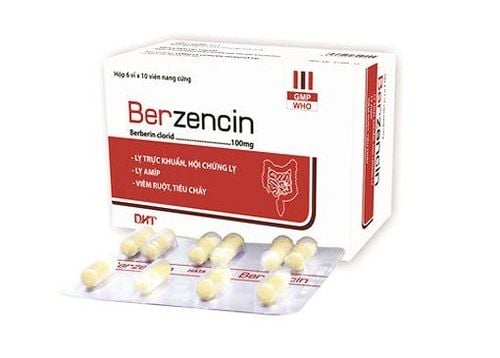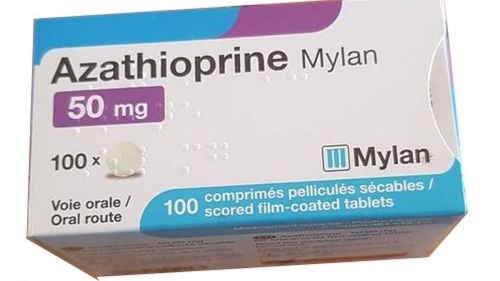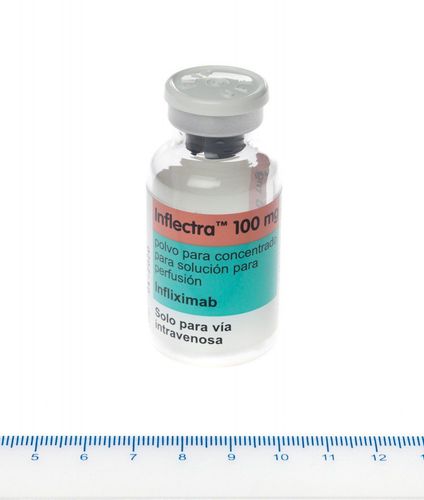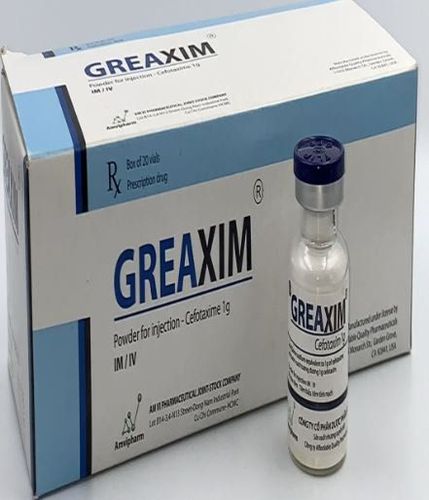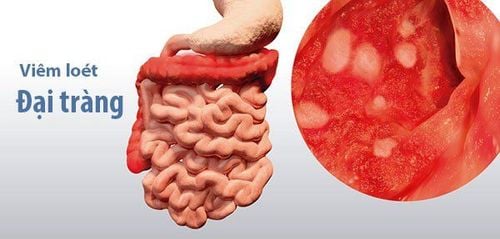This is an automatically translated article.
Article written by Master, Doctor Mai Vien Phuong - Head of Department of Gastrointestinal Endoscopy - Department of Medical Examination & Internal Medicine - Vinmec Central Park International General Hospital.
Crohn's disease may not be as well known as cancer or heart disease, but it has the potential to take as many lives as these two diseases, if not more. Crohn's is a chronic inflammatory disease of the digestive tract. The disease usually affects the large and small intestines, although it can wreak havoc on any part of the digestive tract.
1. There are many ways to treat Crohn's disease
Crohn's disease can manifest itself in a myriad of different ways. Your symptoms and frequency of flare-ups may not be the same as those of other patients. As a result, treatments are tailored to the individual's specific symptoms and severity at each point in time. There are many medical therapies to treat Crohn's disease. Therapies include immunosuppressants, steroids, and biologics.
Current research is looking at new treatment options; including controlling gut bacteria with antibiotics, probiotics, prebiotics and diet. Fecal microbiota transplantation is also being explored. Scientists need to do more studies to determine the effectiveness of Crohn's treatment. Preliminary studies have shown promise for ulcerative colitis, another type of inflammatory bowel disease.
William Katkov, M.D., a gastroenterologist at Providence Saint John's Health Center in Santa Monica, California says most treatments are aimed at controlling different parts of the immune system. fluid leads to increased inflammation and debilitating symptoms.
2. What are bioinhibitors?
Biologics are drugs that are genetically engineered to target certain molecules in the body that are involved in causing inflammation.
Doctors often prescribe biologics for people with refractory Crohn's disease who have not responded to other medications or for people with severe symptoms. Before biologics, there were few non-surgical treatment options for people with intractable Crohn's disease.
Biologic inhibitors provide rapid remission. After a while, the symptoms of inflammatory bowel disease will disappear. Biologics may also be used long-term to help maintain remission.

3. Biological inhibitor drugs
The type of biologic that your doctor recommends will depend on the severity of your symptoms and the location of the disease. Some biologics may work better in some people when compared to others. You may have to try several medications before you find one that works for you.
Biologic drug therapies for Crohn's disease fall into one of three categories: Anti-tumor necrosis factor (anti-TNF) therapy, interleukin inhibitors, and antiproteolytic antibodies.
Anti-TNF therapies target a protein involved in inflammation. For Crohn's disease, anti-TNF therapies work by blocking the inflammation caused by this protein in the gut. Interleukin inhibitors work similarly by blocking natural proteins that cause inflammation in the gut. Anti-inflammatories block certain cells of the immune system that cause inflammation. Biologics are usually given subcutaneously (with a percutaneous needle) or intravenously (through an IV tube). They may be taken every 2 to 8 weeks, depending on the medication. You will have to go to a hospital or clinic for most of these treatments. The FDA has approved several biologic inhibitors to treat Crohn's disease such as:
Anti-TNF drugs:
Adalimumab (Humira, Exemptia). Certolizumab pegol (Cimzia). Infliximab (Remicade, Remsima, Inflectra). Interleukin Inhibitors: Ustekinumab (Stelara).
Antiproteolytic antibodies:
Natalizumab (Tysabri). Vedolizumab (Entyvio).
4. Approaches to Biological Therapy
Biologic drug therapies can be a powerful tool in the treatment and management of Crohn's disease. Currently, there are two different approaches to biologic therapy:
Step therapy was the usual approach until new guidelines were released in 2018. This approach means you You will be asked to try several other treatments before starting biological therapy. Top-down therapy means that biologics are started much earlier in the course of treatment. This is currently the preferred method for many cases of moderate to severe Crohn's disease.
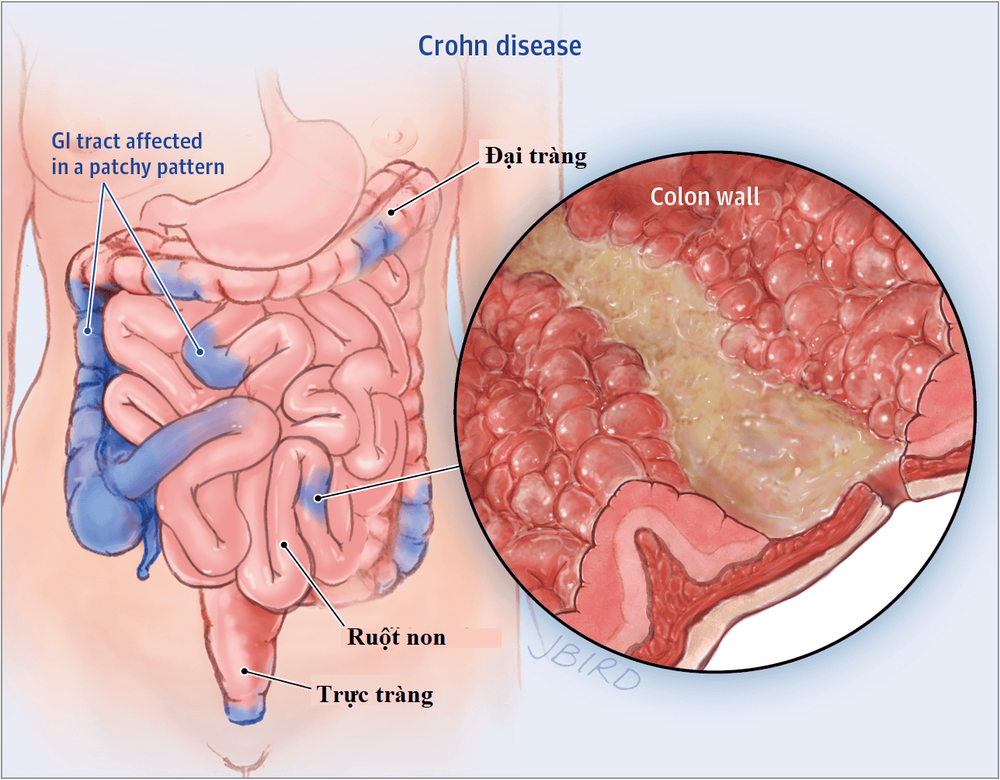
5. Side effects of bioinhibitors
Biologics generally have fewer serious side effects than other Crohn's disease medications, such as corticosteroids that suppress the entire immune system.
However, there are some side effects you should be aware of before taking biologics such as:
Redness, itching, bruising, pain or swelling around the injection site. Headache. Fever or chills. Shortness of breath. Low blood pressure . Rash. Stomachache. Back-ache. Nausea. Cough or sore throat.
6. Some things to consider
Biologic therapy may not be safe for everyone. Talk to your doctor if you have tuberculosis, are prone to infections, have heart disease, or certain other conditions.
Tuberculosis Biologics used for Crohn's disease may increase the risk of reactivation of TB infection in exposed individuals. Tuberculosis is a serious infectious lung disease.
Your doctor should test you for TB before starting biological treatment. The TB infection may be dormant in the body. Some people who have been exposed to the disease may not know it. If you have been exposed to TB before, your doctor may recommend TB treatment before taking biologicals.
Infections Biologics can decrease the body's ability to fight other infections. If you are prone to infections, your doctor may recommend a different type of therapy.
Heart conditions Anti-TNF drugs can be risky for people with certain heart conditions, such as heart failure. Heart failure is when the heart cannot pump enough blood to meet the body's needs. Tell your doctor as soon as possible if you experience shortness of breath or swelling in your feet while taking probiotics to treat Crohn's disease. They can be signs of heart failure.
Other problems Biologic therapies are sometimes associated with serious health problems. In people taking biologics, the following health problems have rarely been reported:
Certain blood disorders (bruising, bleeding). Nerve problems (including numbness; weakness; tingling or visual disturbances, such as blurred vision, double vision, or partial blindness). Lymphoma. Liver damage. Serious allergic reaction. Talk to your doctor to determine the best and most appropriate therapy for you.
Vinmec International General Hospital is one of the hospitals with the function of examination, treatment and screening for many diseases, including gastrointestinal diseases. In particular, in order to bring high efficiency in disease examination and treatment, Vinmec is also fully equipped with modern imaging equipment such as ultrasound machines, CT machines, MRI machines, endoscopes, ...
When there are accurate results and the cause of the disease is found, doctors will coordinate with many different specialties to advise on the most effective treatment regimen to ensure the health of customers.
Please dial HOTLINE for more information or register for an appointment HERE. Download MyVinmec app to make appointments faster and to manage your bookings easily.
Reference article: gastroenterologyandhepatology.net






